Évin: What is it? A Trojan horse
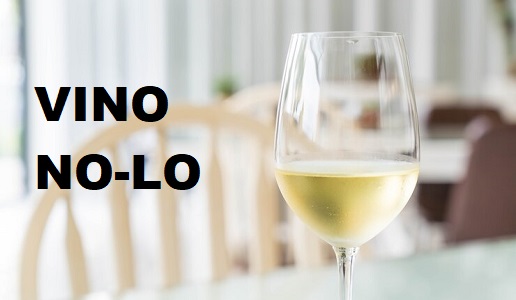
Some observations on the sidelines of the conference “Italian wine a protagonist in the world food and agriculture industry”, which took place on September 27, 2023 at Castello di Nipozzano and was organized by Nomisma, Agronetwork and Confagricoltura and hosted by Marchesi Frescobaldi.
There is good news on the health of the Italian wine sector. The Nomisma study “Italian wine in the world, trends, market share and prospectives” highlighted a healthy sector that saw a +68% jump in world exports from 2012 to 2022 and an increase from 4.7 to 7.8 billion euros in value for the same period. The share of wine in Italy’s total food and agriculture exports is equal to 13% and this thanks to the contribution of all Italian regions with their vast and appealing diversity of offerings. The less than impressive results for the first quarter of 2023 are only partially of concern given that they can be attributed to short-term factors on a global level.
Of greater concern are the current market trends, above all in regard to the new generations, especially Generation Z. These trends show a growing demand for organic or biodynamic wines, great attention paid to sustainability, along with factors and consumer habits like the off-premise increase for white wine, which are phenomena that can be governed with a certain amount of ease.
The critical concerns are others. Among these, two were underscored by Confagricoltura’s Federico Castellucci and they are the demand for non or low alcoholic wines and wines suited for mixology. Another critical issue, according to Lamberto Frescobaldi, is the process of mechanization and the chronic shortage of manpower, together with the low political clout of the agricultural sector in general.
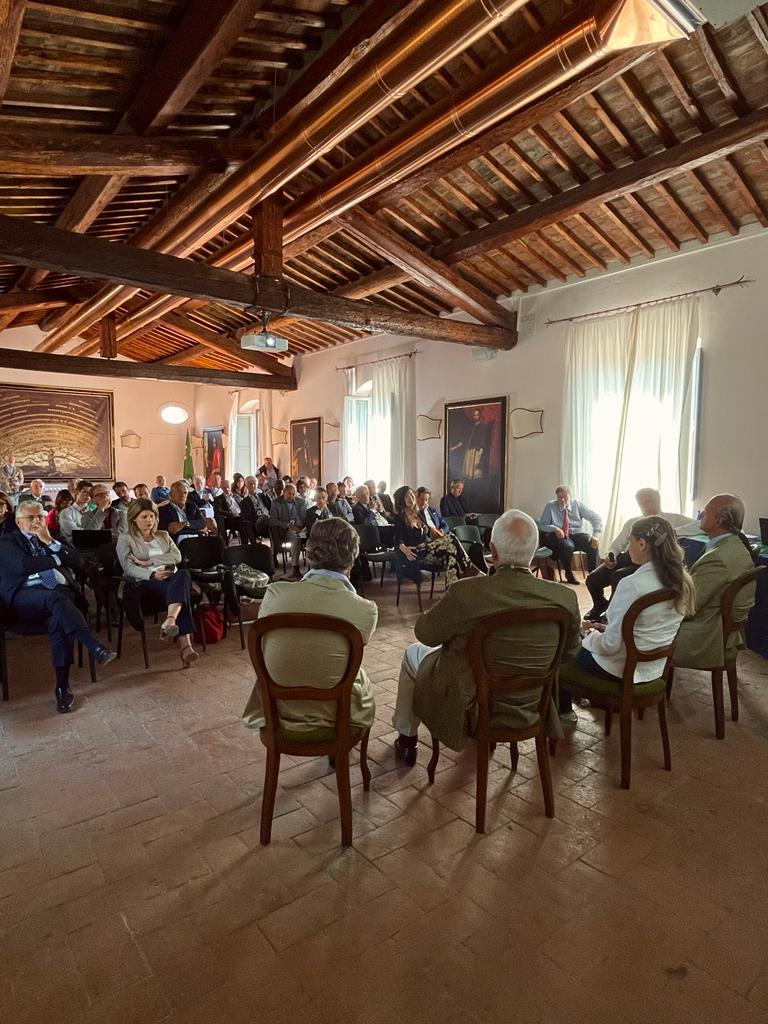
But the worst trend is something else about which, in my view, not enough is being done to contrast it. Studies show an increase in the demand for non-alcoholic wines, a phenomenon that surprises some, with debate centering whether or not to define them as “wine”, while no one is talking about the very powerful non-alcohol lobby, which is seeking to thwart wine consumption in the name of health. Exactly what or who is behind Nutri-Score labeling or the label warning recently adopted by Ireland? In his article Trojan Horse, Daniele Cernilli spoke of a conspiracy and an attack on wine in the name of health: so true! But we should call this by its real name! LOBBYING!
In the 1990s, I became engaged with the Master of Wine world. The first question I asked myself was: “What’s this Évin loi (law). Who or what was Évin? I knew who Carneades was much better and I was not alone. Every colleague I asked about this could not give me an answer. Well, the Évin law was the 1992 law adopted in France banning all advertising of alcohol products in the media, starting with wine. This was followed, first in France and then in all of Europe, by a drive to end funding for promoting wine and saw the adoption of accepted alcohol levels in the blood, breathalyzers and what all this resulted in.
In the end, we habitual wine consumers found ourselves risking horrible consequences for just drinking a glass of wine, while the consumption of spirits and various drugs continues to increase unchecked in night clubs around the world. Because I considered the Évin law to be unjust, I decided to investigate to determine who really benefited from it. The prime suspects were the anti-alcohol associations of every stripe and I was able to read their balance sheets online. What I discovered was that one of their greatest financial sponsors was a very famous multinational producer of non-alcoholic beverages. The Évin law is now 30 years old and there is a third generation of anti-alcohol associations, headed by Addictions France, but their balance sheets are no longer available online. It would appear that they have a war chest of some 19,112,640 euros of which 3,3 billion euros are from private donations. In the meantime, the fight against alcoholism has increasingly become an attack on wine and the measure adopted in Ireland was just saber rattling by the anti-alcohol forces as they seek to expand its application on the broadest scale possible.
Now for lobbying. Even French President Emmanuel Macron, who in his defense of the alcohol sector promised to not modify the Évin law to further limit marketing lawsuits filed in France, has been accused of lobbying himself. (The Regulation of Alcohol Marketing in France: The Loi Evin at Thirty. Marine Friant-Perrot1 and Amandine Garde2 1: UNIVERSITY OF NANTES, FRANCE, 2: UNIVERSITY OF LIVERPOOL, UNITED KINGDOM).
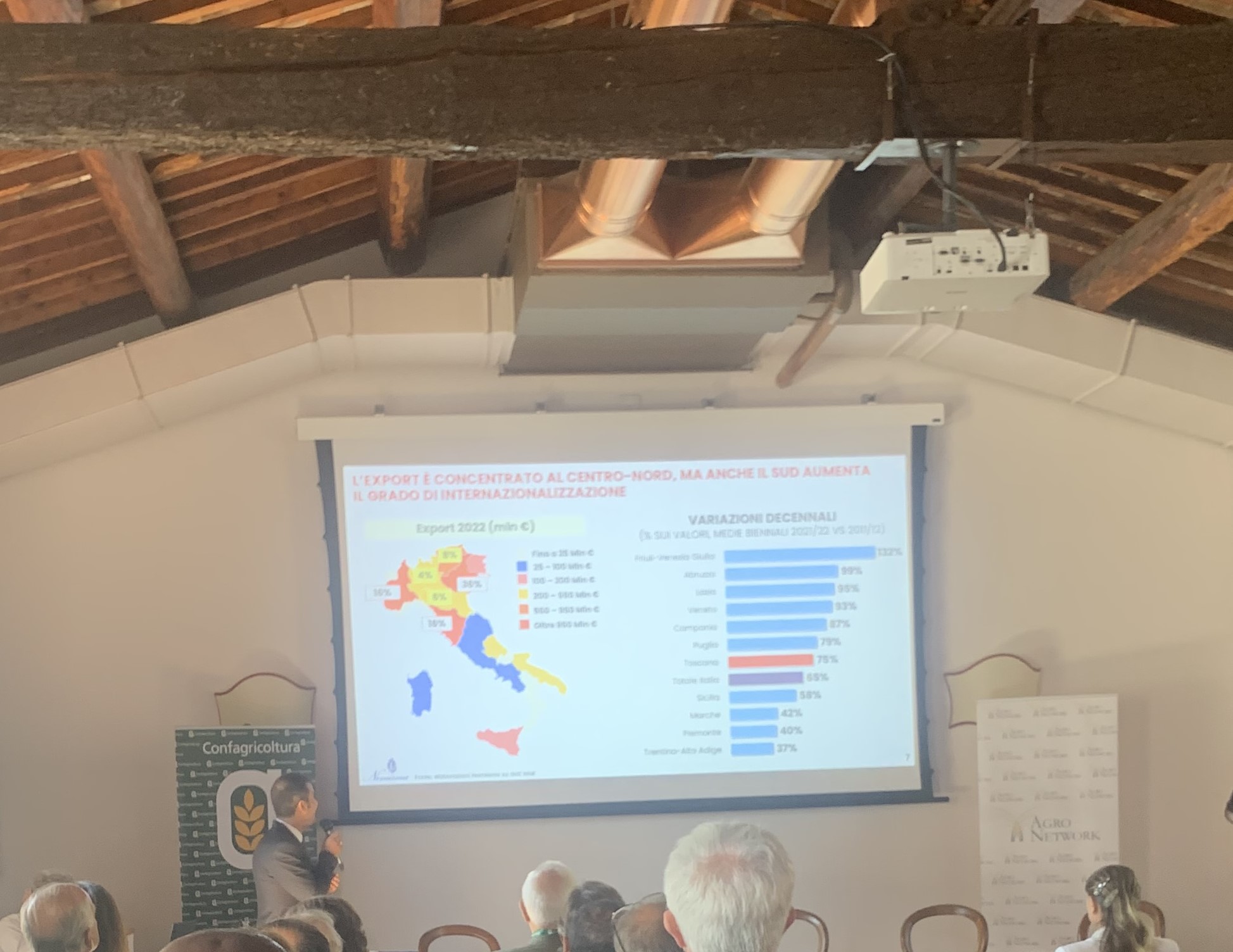
Lobbying, which originated in the United States, is defined as “the attempt by individuals or groups interested in influencing government decisions”. After Washington, Brussels is the second capital of lobbying because it is home to the leading European Union institutions. Lobbying was regulated by the European Council in 2021 with the obligation of persons representing interest groups to register in a “Transparency Registry”, and to abide by a code of conduct, while parliamentarians were obliged to make public their meetings with these interest groups. Italy has no laws in regard to lobbying, an activity that does not have a good reputation due to certain negative events in its recent history. Nevertheless, lobbying associations exist and there is also a 2022 proposed law to regulate lobbies on a national level.
What this all means is: lobbying exists and is practiced in a very invasive way by pharmaceutical companies, chemical industry giants, the food and agriculture sector, beverage giants and environmental associations and it operates on a global scale with significant investments. Confronted with this phenomenon, the Italian wine sector is totally absent, it is strongly divided and distracted by internal competition and no one is even thinking about contrasting this phenomenon using the same means. (*)
The non-Alcohol Empire is focusing its attention on dealcoholized wine and this has created the latest problem: should it be defined as wine or not?
First of all, I would like to point out that demand for non-alcoholic wines existed before the non-alcohol fad began and it was basically based on religious reasons. In 2015, I took part in Vinitaly Sol&Agrifood with a Tuscan olive oil producer. We were visited by an Iranian client who, before leaving us, asked my advice on which non-alcohol wines he could taste at the trade fair. This did not surprise me because I am used to retail points in Britain where such products are readily available, on the same level as white and blue Champagne. What took me by surprise was the fact that in Italy such products are virtually impossible to find. Considering the demand from Muslim markets, producing a non-alcoholic wine is not that farfetched. But now, aside from the religious consideration, fad trends have also come into play.
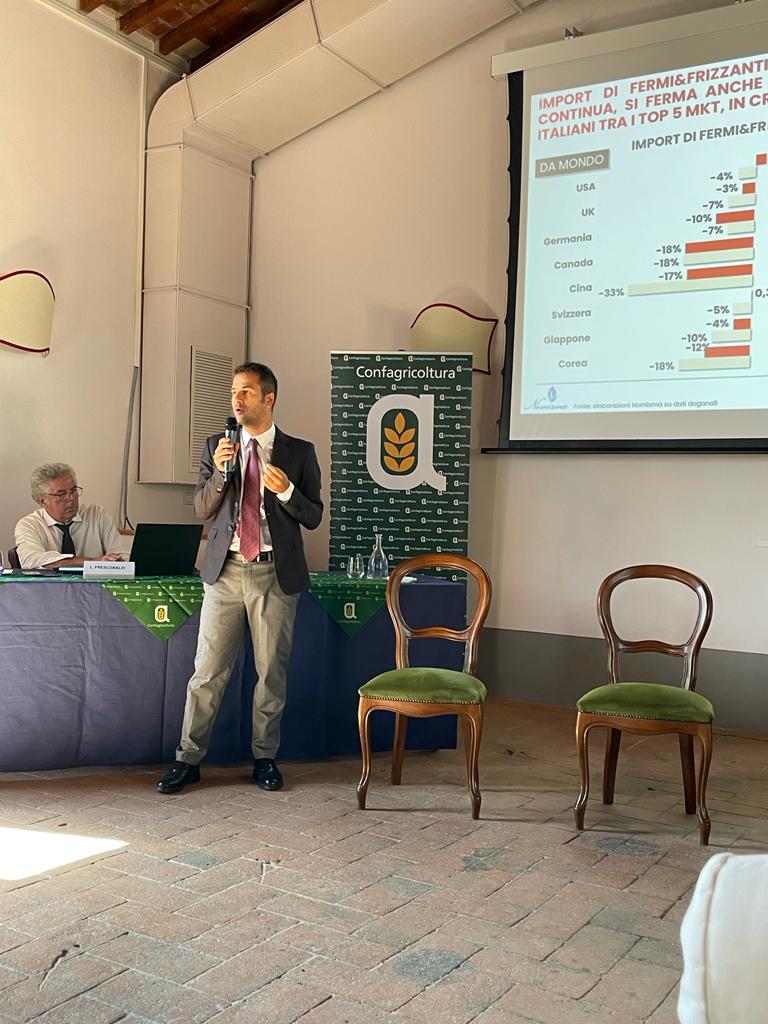 The Nomisma study concluded that the market is increasingly favoring organic and (above all) sustainable products, with great attention being paid by the younger generations to lower alcohol levels, easy drinkability and mixology. According to Castellucci: “we need to address the production of dealcoholized wine, just the way beer producers did”. Making matters even worse, in Britain the Sunak government has adopted a tax reform that strongly penalizes still wine, even if it does not touch sparkling wine.
The Nomisma study concluded that the market is increasingly favoring organic and (above all) sustainable products, with great attention being paid by the younger generations to lower alcohol levels, easy drinkability and mixology. According to Castellucci: “we need to address the production of dealcoholized wine, just the way beer producers did”. Making matters even worse, in Britain the Sunak government has adopted a tax reform that strongly penalizes still wine, even if it does not touch sparkling wine.
The non-alcohol lobby appears to be rapidly gaining ground. So what can Italian producers do?
Those who produce top-shelf or collector wines risk very little because they have a restricted, cultured, evolved and passionate clientele, and then there are the new rich for whom money is no object, a group that appears to be increasing on the rise. Those who produce territorial wines rely on the cultural level of their consumers, who generally reject industrial wines. As for small and medium-sized producers, they need to join together and cooperate.
Then there is the universe of industrial wines, where the quantity is great and quality questionable. The non-alcohol giants are well-equipped to move into this sector. The argument that wine producers are unable to compete with them doesn’t really convince me. I know many producers of bulk wine, many of whom are not that big, who have cross-flow wine filters that cost hundreds of thousands of euros, and so switching over to produce dealcoholized wine should not be an insurmountable problem. In view of climate change, reverse osmosis and other methods to remove alcohol from wine are more employed than one might imagine. There are machines that offer the option of extracting, 10, 20, 100 and 200 liters of alcohol an hour. Perhaps the problem has more to do with marketing, a sector in which Italian producers do not exactly shine in. But nothing is impossible. This leads us to the Hamletic problem: should we continue to call it “WINE” or “NOT WINE”?
According to current laws, wine is defined as “a product exclusively obtained by alcoholic fermentation, total or partial, of grapes, pressed or not pressed, or of grape must with an alcoholic content of not less than 3/5 of the overall content.”. An attempt to reduce alcohol levels was made by the European Union in 2021 and there was even a push to allow the possibility of adding water to wine. A measure to allow the term wine to be applied to products with an alcoholic content of less than 8 or 9% still needs to be adopted by various EU governments and this is where lobbying groups are focusing their attention in view of the new CAP (Common Agriculture Policy) reform. What should not be in question is the primary ingredient GRAPES.
There are those who maintain that using the word wine for non-alcoholic wines would favor the beverage lobby, considering the fact that this sector already has a well-tuned structure to produce non-alcoholic and carbonized beverages and well-established marketing strategies. The situation is anything but simple. Not allowing the term wine to be used would remove the incentive of all wine producers to remain in the non-alcohol sector which, on the other hand, would appear to have great development and economic prospects. Not using the term wine would thus not benefit anyone, neither the pro-alcohol nor the non-alcohol lobbies.
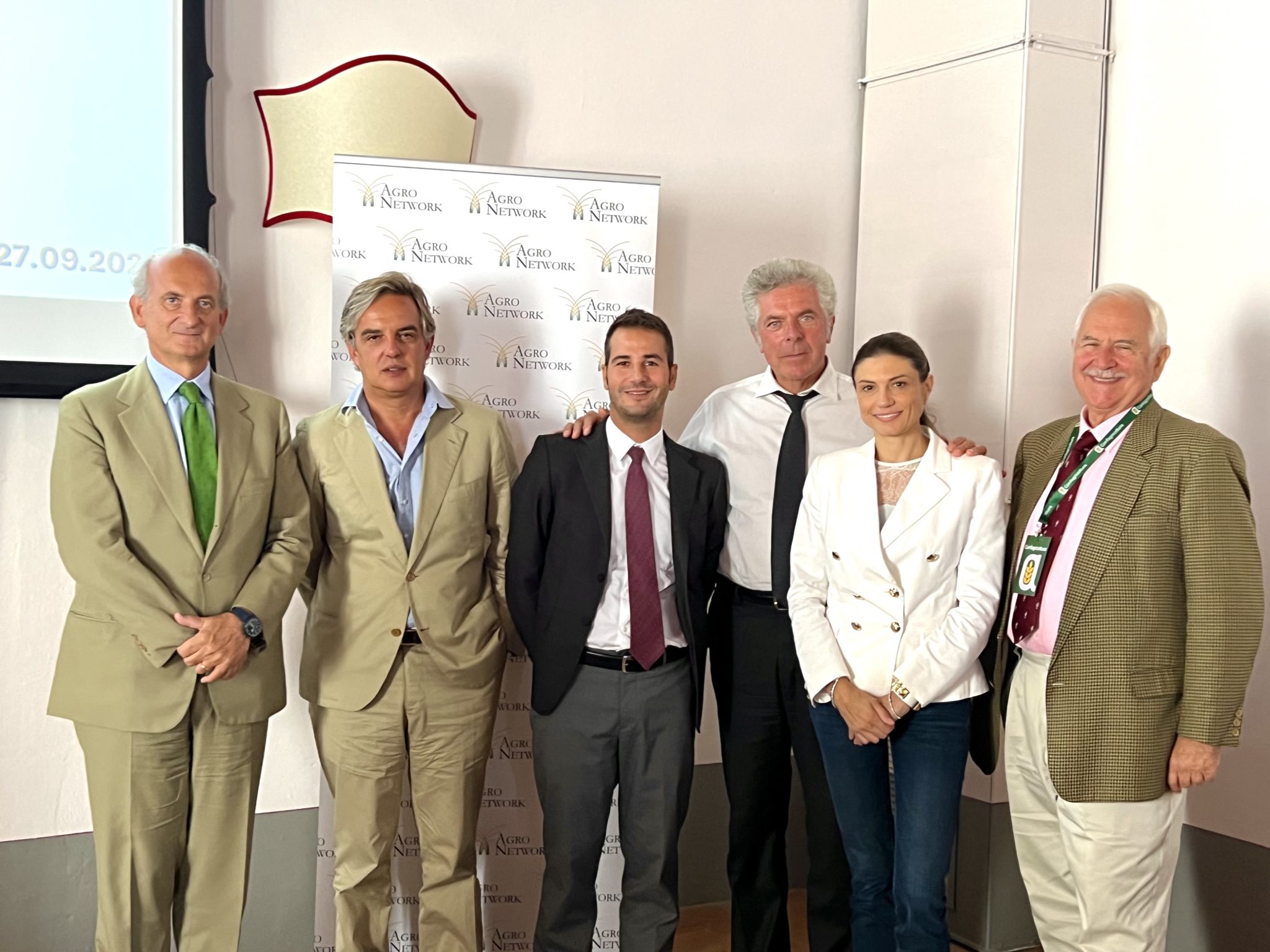 Allowing the term wine to be used, on the condition that the product is derived from the fermentation of grapes, would force producers, of both non and alcoholic wines, to start with this prime ingredient. The beverage industry would thus be obliged to plant their own vineyards (unlikely) or to obtain wine from bulk producers, which would give a boost to the production on non-bottled wine and reduce wine surpluses. This year, France had to spend 57 million euros to uproot 9,500 hectares of vineyards in Bordeaux to reduce yield. Similar actions took place in Australia. What would happen if all that money was to be invested for the production of dealcoholized wine destined for the markets of 17 Muslim countries (from Saudi Arabia to the United Arab Emirates, parts of India, Indonesia and so on) where it is forbidden to consume alcohol?
Allowing the term wine to be used, on the condition that the product is derived from the fermentation of grapes, would force producers, of both non and alcoholic wines, to start with this prime ingredient. The beverage industry would thus be obliged to plant their own vineyards (unlikely) or to obtain wine from bulk producers, which would give a boost to the production on non-bottled wine and reduce wine surpluses. This year, France had to spend 57 million euros to uproot 9,500 hectares of vineyards in Bordeaux to reduce yield. Similar actions took place in Australia. What would happen if all that money was to be invested for the production of dealcoholized wine destined for the markets of 17 Muslim countries (from Saudi Arabia to the United Arab Emirates, parts of India, Indonesia and so on) where it is forbidden to consume alcohol?
(*) At this point, one could also cite the case of genetically modified grains, corn and wheat, which were made sterile in order to sell their seeds annually, or grains irradiated with gamma rays, or the presence of glyphosates in wheat imported from Canada. Who is it that convinced the journalist Alessandro Trocino to elegantly say: “enough: you’ve busted our balls, you and your ancient grains”?. Or the writer Luigi Cattivelli, in his “Our Bread, Ancient Grains, Flours and Other Lies”, who asserted that “It has been demonstrated that the association between modern wheats, mutagenisis and radiation, used to induce mutations, is something that is only found on sites that are not exactly “scientific”? So non-scientific, however, that in 15 minutes of research online I found 18 university researches including “Gamma radiosensitivity study on wheat (Triticum turgidum ssp. durum)” De Gruyter Open Agricolture 2020.
This is a very disturbing case of denial that says a lot about the influence of sector lobbies. Any reference to Monsanto is anything but coincidental.

 Italiano
Italiano








